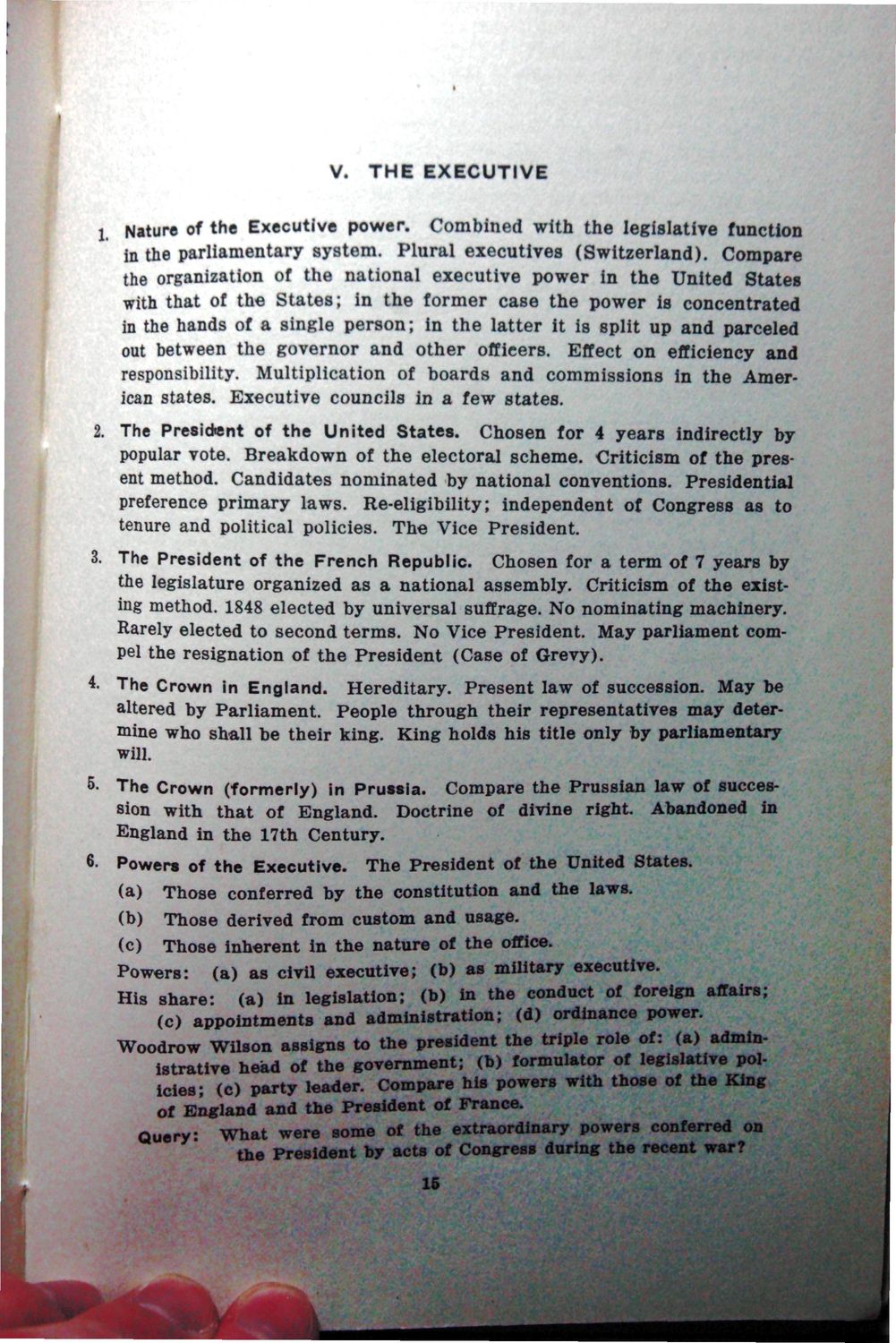Caption: War Publications - WWI Compilation 1923 - Article 48
This is a reduced-resolution page image for fast online browsing.

EXTRACTED TEXT FROM PAGE:
V. THE EXECUTIVE 1 Nature of the Executive power. Combined with the legislative function in the parliamentary system. Plural executives (Switzerland). Compare the organization of the national executive power in the United States with that of the States; in the former case the power is concentrated in the hands of a single person; in the latter it is split up and parceled out between the governor and other officers. Effect on efficiency and responsibility. Multiplication of boards and commissions in the American states. Executive councils in a few states. 2. The Presictent of the United States. Chosen for 4 years indirectly by popular vote. Breakdown of the electoral scheme. Criticism of the present method. Candidates nominated by national conventions. Presidential preference primary laws. Re-eligibility; independent of Congress as to tenure and political policies. The Vice President. 3. The President of the French Republic. Chosen for a term of 7 years by the legislature organized as a national assembly. Criticism of the existing method. 1848 elected by universal suffrage. No nominating machinery. Rarely elected to second terms. No Vice President. May parliament compel the resignation of the President (Case of Grevy). 4. The Crown in England. Hereditary. Present law of succession. May be altered by Parliament. People through their representatives may determine who shall be their king. King holds his title only by parliamentary will. 5. The Crown (formerly) in Prussia. Compare the Prussian law of succession with that of England. Doctrine of divine right. Abandoned in England in the 17th Century. 6- Powers of the Executive. The President of the United States. and (a) (b) Those derived from custom and usage. (c) Those inherent in the nature of the office. Powers: (a) as civil executive; (b) as military executive. His share: (a) in legislation; (b) in the conduct of foreign affairs; (c) appointments and administration; (d) ordinance power. Woodrow Wilson assigns to the president the triple role of: (a) admin istrative head of the government; (b) formula or of legislative policies; (c) party leader. Compare his powers with those of the King of E ^ l a n d and the President of France. Query What were some of the extraordinary powers ^conferred on President 15
|